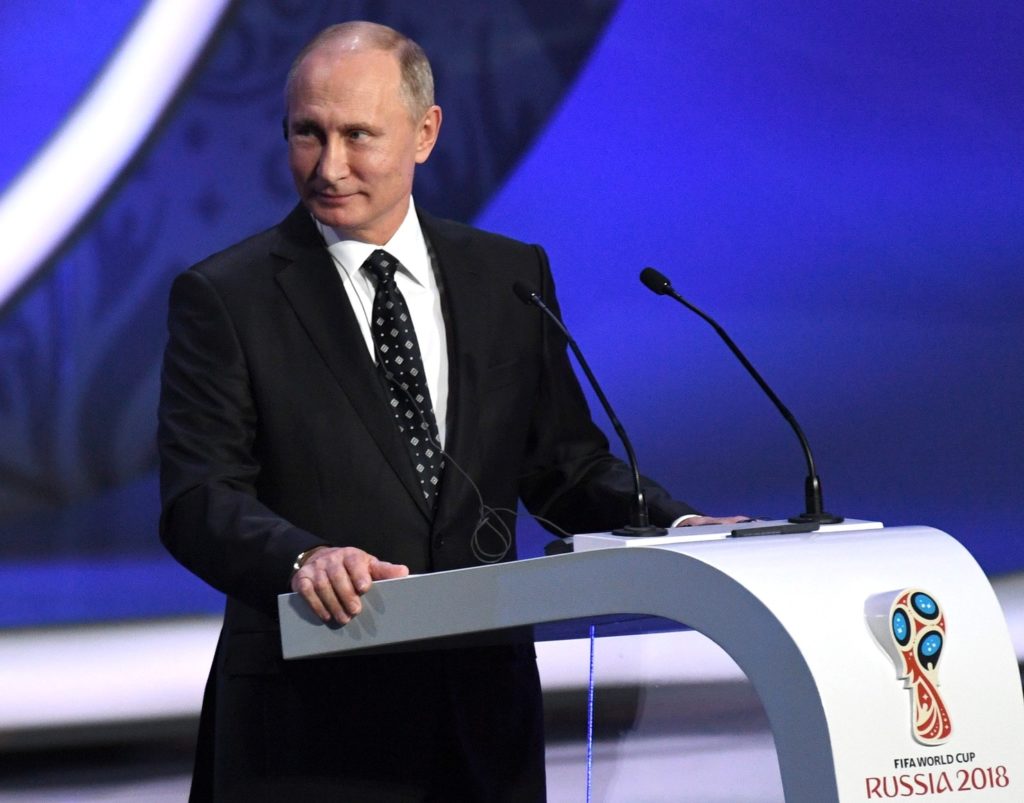
News about the 2018 World Cup in Russia will dominate sports headlines and television screens throughout the summer months as fans come out of the woodwork to support their nation’s soccer teams. And while the World Cup is a great way to unite people, it is important to think of the broader implications of this major international sporting event, and specifically, hosting it in one of the most politically controversial countries in the world. At the opening ceremony, Russian President Vladimir Putin claimed Russia wanted to host the event due to the country’s adoration for the sport: “In our country, football is not just the most popular sport. People genuinely love football … We prepared responsibly for this major event and did our best so that fans, athletes and specialists could immerse themselves in the atmosphere of this magnificent football festival and, of course, enjoy their stay in Russia – open, hospitable, friendly Russia.”
The World Cup is a large public relations opportunity for Putin, as leaders around the world are forced to temporarily forget and minimize the actions of his administration while their countries participate in the sporting event organized by his country. Russia is currently embroiled in controversies ranging from continued backlash over their annexation of Crimea to their support of the Syrian government in the Syrian Civil War, and even more recently controversies relating to their alleged intervention in the United States’ 2016 elections. This thick fog of controversy has seemed to escape the minds of people around the world – which is exactly what the Putin administration would want. Events like these serve to help coerce the population into believing in the legitimacy of their governments and soccer players are sadly being used as pawns for propaganda. Infamous Chechen leader Ramzan Kadyrov, who was recently sanctioned by the US Treasury Department for human rights violations, was seen taking photos with Egyptian soccer star Mo Salah at Grozny stadium, while also giving the player a personal tour in front of the press. According to Rachel Denber from Human Rights Watch, “This is Kadyrov trying to capitalise on Chechnya being a team base to boost his own profile…it was 100 per cent predictable.”
Now, don’t get me wrong, I absolutely love the World Cup. I’ve spent the past two weeks watching every single game (go England!), and it’s been a great talking point for everybody in my town. International sporting events like these are always a fun experience for the citizens of the host nations and those cheering abroad. These events are also always an opportunity for leaders to gain public support which is particularly noticeable this year. I think it’s important to keep politics out of stadiums and kept in parliaments.
Dominic Floreno is a high school student and 1st prize winner of the FPA’s 2018 student essay/video competition.